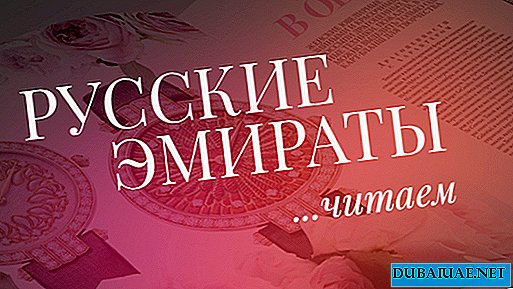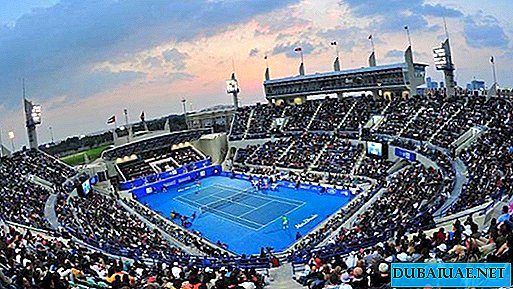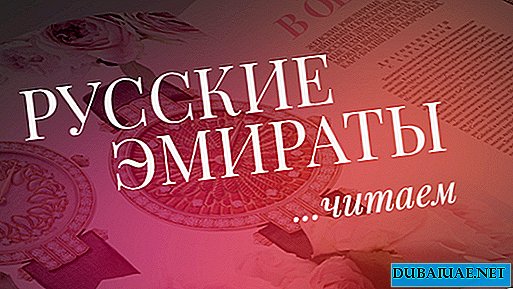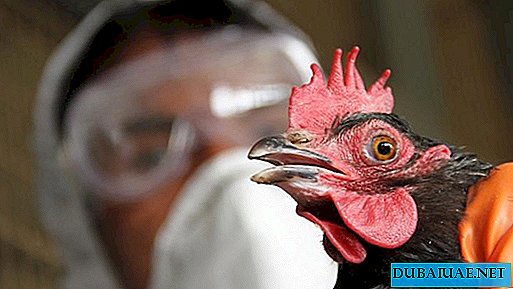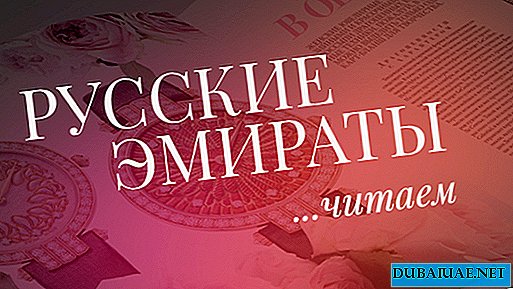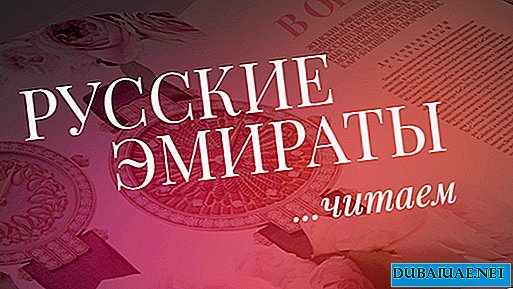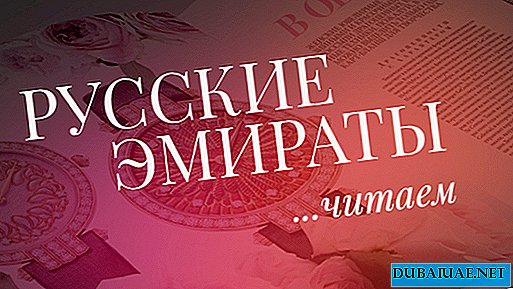DO NOT REPORT TO THE ARAB EAST, ASIA AND AFRICA, TODAY IS IMPOSSIBLE. Oil-fueled ambitions of many Arab countries are grandiose, and the strength of their great. THEY PROGRESS NOT DAYS, BUT HOURS, AND TOGETHER ACTIVELY PULL ON THE GLOBE EXTENDED GOLDEN BLANKET OF INFLUENCE. AND DO THIS SOME SILENTLY AND ELEGANTLY, WITH NATURAL MODERNITY AT THE ARABS AND ENDLESS STABILITY.
The ranking of "100 Most Influential Arabs of the World 2008" (Powerful Arabs 2008), is annually compiled by the Arabian Business Publishing Group. It includes businessmen, athletes, medical workers, artists, scientists, poets and representatives of other professions and areas that have left their mark on the history of the Arab countries in the past year.
The ranking positions are distributed by the decision of the expert council according to a very simple principle - the more people, according to experts, will follow each of the candidates in the direction indicated by them, if such a need arises, the greater is its influence in society and, accordingly, the higher is the line in the rating of influence.
Experts have traditionally left behind discussions and evaluations of members of royal families, religious figures, and politicians. However, this year’s rating experts again made an exception for two representatives of royal bloods — the Saudi prince Alvalid bin Talal Al Saud and a member of the ruling family of Dubai, His Highness Sheikh Ahmed bin Saeed Al Maktoum.
IN THE TEN!
 It is His Royal Highness the Saudi prince Alvalid bin Talal Al Saud who is in the first line of the rating of “100 Most Influential Arabs of the World 2008”. Moreover, the fourth year in a row. The richest Arab in the world is known for his grandiose capital and eccentric acts, such as the acquisition of the Boeing airliner for use as a mobile palace. According to papers, the Prince Alvalid empire covers 10 sectors of the economy, in fact, its investment portfolio is difficult to evaluate even for market monitoring specialists.
It is His Royal Highness the Saudi prince Alvalid bin Talal Al Saud who is in the first line of the rating of “100 Most Influential Arabs of the World 2008”. Moreover, the fourth year in a row. The richest Arab in the world is known for his grandiose capital and eccentric acts, such as the acquisition of the Boeing airliner for use as a mobile palace. According to papers, the Prince Alvalid empire covers 10 sectors of the economy, in fact, its investment portfolio is difficult to evaluate even for market monitoring specialists.
Behind all this tinsel, shrouded in billions of dollars, lies the extensive charity work of the most influential Arab, which he conducts in Africa. And it was a combination of grandiose personal success and wealth, with the help of less successful ones, that allowed Arabian Business experts to put Saudi Prince on the first line again.
Unusual Mahmoud, the Iraqi footballer who brought the victory of the Iraqi national team at the Asian Football Championship 2007, unexpectedly took the second place for many people. “His goal against the Saudi Arabian team last year did not just bring the Iraqi national team victory for the first time,” commented the experts’ decision. Anil Boyrula, editor of the Arabian Business group of publications, “this goal overnight united Sunnis and Shiites, who forgot about their disagreements during the celebrations on the occasion of the victory of the national team.”
 The Iraqi athlete proved so popular last year that he managed to move the third most influential of the emirates, Sultan Ahmed bin Sulayem, to third place. In 2007, the manager of the holding Dubai World not only had a significant impact on the expansion of the holding in the international maritime freight market, but also managed to maintain a reputation in the European markets of the Dubai Sovereign Wealth Fund (SWF), which was spoiled by competitors in 2007. . Do not forget that it is under the wing of Sultan Ahmed bin Sulayem that the Dubai-based developer Nakheel is working, which completed two projects of alluvial islands last year. The apparent successes of bin Sulayem in 2007 allowed him to rise from sixth to third place in the year 2008.
The Iraqi athlete proved so popular last year that he managed to move the third most influential of the emirates, Sultan Ahmed bin Sulayem, to third place. In 2007, the manager of the holding Dubai World not only had a significant impact on the expansion of the holding in the international maritime freight market, but also managed to maintain a reputation in the European markets of the Dubai Sovereign Wealth Fund (SWF), which was spoiled by competitors in 2007. . Do not forget that it is under the wing of Sultan Ahmed bin Sulayem that the Dubai-based developer Nakheel is working, which completed two projects of alluvial islands last year. The apparent successes of bin Sulayem in 2007 allowed him to rise from sixth to third place in the year 2008.
In the context of the global oil crisis, which spurred oil prices last year, it is not surprising that Libyan Abdullah Salem Al Badri, who holds the post of Secretary General of OPEC, was on the fourth line of the rating. OPEC member countries own most of the world's oil reserves and control its flow to the markets, having a direct impact on pricing policies. And not the last role in this is played by Al Badri himself.
 The most influential Arab woman in the world is Lebanese Nadine Labaki, who took fifth place in the ranking. This year, Nadine, famous for directing music videos and an unmistakable flair for new talents, secured a place in the top ten thanks to the success of the premiere screening of the Caramel romantic comedy at the Cannes Film Festival, in which she acted as a director, producer and actress.
The most influential Arab woman in the world is Lebanese Nadine Labaki, who took fifth place in the ranking. This year, Nadine, famous for directing music videos and an unmistakable flair for new talents, secured a place in the top ten thanks to the success of the premiere screening of the Caramel romantic comedy at the Cannes Film Festival, in which she acted as a director, producer and actress.
Emirate Muhammad Allabar, chairman of the Dubai development company Emaar, slipped from second to sixth this year. Nevertheless, he retained his place in the top ten due to the obvious success of his company in the domestic and international markets. In 2007, Emaar declared itself as a global developer, launching a number of large projects in different countries of the world. In 2007, Emaar posted a net profit of US $ 1,790 trillion, up 3% from 2006. The company's annual revenue was US $ 4.782 trillion, showing growth of 25% from the previous year. It is hard not to reckon with such a large player.
 Another newcomer to the ranking - a young Lebanese, 25-year-old doctor Michelle Obeid, has earned universal recognition after the discovery of a new therapy that can stop the development of cancer. Last year, in France, where he received his Ph.D., a team under his leadership created a drug that activates the immune system, as a result of giving her the opportunity to detect cancer cells and destroy them. It has been experimentally proven that it contributes to the destruction of up to 90% of cancer cells after two weeks of treatment and the practical cure of the remaining 10% of the cells. The work of Dr. Obeid was rated seventh in the ranking of the most influential Arabs.
Another newcomer to the ranking - a young Lebanese, 25-year-old doctor Michelle Obeid, has earned universal recognition after the discovery of a new therapy that can stop the development of cancer. Last year, in France, where he received his Ph.D., a team under his leadership created a drug that activates the immune system, as a result of giving her the opportunity to detect cancer cells and destroy them. It has been experimentally proven that it contributes to the destruction of up to 90% of cancer cells after two weeks of treatment and the practical cure of the remaining 10% of the cells. The work of Dr. Obeid was rated seventh in the ranking of the most influential Arabs.
 It is hard to believe that Jordanian Wade Hanfar, who occupies the eighth line of the rating, is only 39 years old: during his relatively short career, he managed to become one of the most influential people in the world of media. Hanfar began building the Al Jazeera empire in 2003 when he was appointed CEO of the Al Jazeera satellite television channel. The channel gained world fame after covering American raids on Afghanistan and Osama bin Laden's live appearances.
It is hard to believe that Jordanian Wade Hanfar, who occupies the eighth line of the rating, is only 39 years old: during his relatively short career, he managed to become one of the most influential people in the world of media. Hanfar began building the Al Jazeera empire in 2003 when he was appointed CEO of the Al Jazeera satellite television channel. The channel gained world fame after covering American raids on Afghanistan and Osama bin Laden's live appearances.
Today, under the leadership of Hanfar, there is a whole media network of seven channels in Arabic and English, from global news, to the channel broadcasting documentaries in Arabic, as well as the Arabic and English versions of the online news site on the Internet.
On the ninth line of the rating is Lebanese fashion designer Eli Saab, whose worldwide fame was brought by the unexpected appearance of American actress Halle Berry at the Oscar in an amazingly beautiful creation from Saab. Since then, a fashion designer from Beirut has become one of the favorites of world celebrities.
 The tenth position was given to the Emirate, His Highness Sheikh Ahmed bin Saeed Al Maktoum, Chairman of the Board of Emirates Airline. The chief of the largest Arab airline in 2007 distinguished himself primarily by forcing the aircraft majors - Airbus and Boeing - to launch a real fight at the international air show in Le Bourget for the right to supply aircraft for Emirates. An order of 93 aircraft for a total of US $ 23.4 trillion put Emirates among the record holders, and significantly added weight to Sheikh Ahmed in the global airline industry. However, last year and with less outstanding results, Sheikh Ahmed occupied the fifth line, apparently due to his firmness in the fight against the delay in the execution of orders by Boeing.
The tenth position was given to the Emirate, His Highness Sheikh Ahmed bin Saeed Al Maktoum, Chairman of the Board of Emirates Airline. The chief of the largest Arab airline in 2007 distinguished himself primarily by forcing the aircraft majors - Airbus and Boeing - to launch a real fight at the international air show in Le Bourget for the right to supply aircraft for Emirates. An order of 93 aircraft for a total of US $ 23.4 trillion put Emirates among the record holders, and significantly added weight to Sheikh Ahmed in the global airline industry. However, last year and with less outstanding results, Sheikh Ahmed occupied the fifth line, apparently due to his firmness in the fight against the delay in the execution of orders by Boeing.
Arab culture, art, music and sports have shown themselves much better this year than in the past. Egyptian singer Amr Diab (24th position) is recognized as the most influential figure in the world of Arab musical culture, followed by Lebanese "star" Elissa (38) and her countrywoman Nancy Ajram (60). All of them significantly increased in influence, climbing high up. Elissa was able to conquer 59 lines overnight.
RECORDERS OF INFLUENCE
This year, the rating was updated with 40 new faces, most of which are actively promoted by the Arab media, which eloquently indicates the increased influence of the media in the Arab world, where their work has always been actively monitored. Four newcomers straight into the top ten, four - located in the top twenty.
Forged the most influential Arabs that year recognized two countries - the UAE and Lebanon, six of which were among the top ten. In total, the ranking of one hundred people includes 21 UAE citizens and 19 Lebanese citizens. The third largest number of influential people was Saudi Arabia, which has 15 positions in the ranking. Arabs from the Gulf Cooperation Council members make up exactly half of the entire list. The best result this year was Akbar Al Baker, chairman of the board of directors of Qatar Airways, taking off from 84 stocks to 14.
10 most influential UAE citizens
- Sultan Ahmed bin Sulayem (Chairman of the Board of Dubai World Holding) - 3 position
- Muhammad Alabbar (Chairman of the Board of the development company Emaar) - 6 position
- His Highness Sheikh Ahmed bin Saeed Al Maktoum (Chairman of the Board of Emirates Airline) - 10 position
- Samir Al Anasari (Managing Chairman of Dubai International Capital (DIC) Investment Company - 11th position
- Dr. Suleiman Al Fahim (Head of Development Company Hydra Holding) - 16 position
- Sultan Nasser Al Suwadi (Governor of the Central Bank of the UAE) - 21 positions
- Mishal Kanu (Deputy Chairman of Kanoo Group) - 22 position
- Kaldun Mubarak (head of the state investment company Mubadala Development Company) - 26 position
- Sultan Al Jaber (Chairman of the Board of Directors of the development company Masdar) - 27 position
- Mohammed Said Kharib (creator of the animated series FREEJ, director of Lammantra Pictures) - 33 position
 This time, Arab sport is represented by three persons: the record holder, Iraqi footballer Unus Mahmoud (2), the famous Egyptian footballer, goalkeeper Issam El Hadari (41), and the Kuwaiti minister, Sheikh Ahmad Al Faad (71), who is promoting the Arabian Peninsula host of the olympic games. Apparently due to the fact that the attention of the world community is focused on Beijing 2008 and London 2012, Sheikh Ahmad slid this year from the 8th to the 71st line of the rating.
This time, Arab sport is represented by three persons: the record holder, Iraqi footballer Unus Mahmoud (2), the famous Egyptian footballer, goalkeeper Issam El Hadari (41), and the Kuwaiti minister, Sheikh Ahmad Al Faad (71), who is promoting the Arabian Peninsula host of the olympic games. Apparently due to the fact that the attention of the world community is focused on Beijing 2008 and London 2012, Sheikh Ahmad slid this year from the 8th to the 71st line of the rating.
There are also significantly more influential women this year. At the same time, many of them are not "stars" of popculture, but significant business leaders who manage serious companies and holdings. Interestingly, on the 77th line was the 26-year-old Saudi Arabian citizen Raja Al Sannae, now living in American Chicago, the author of the book "Girls of Riyadh", which tells about the life of Saudi women aristocrats. After publishing a book in Arabic in 2005, the girl had to answer for her courage before a court in Saudi Arabia.
 5 MOST INFLUENCING ARAB WOMEN
5 MOST INFLUENCING ARAB WOMEN
- Nadine Labaki (director, screenwriter, actress; Lebanon) - 5 position
- Maria Maaluf (TV presenter of New TV, head of the political program on NBN, Lebanon) - 36 positions
- Elissa (popular singer, Lebanon) - 38 position
- Lubna Olayyan (Chairman of the Board of Directors, Olayan Financing Company, Saudi Arabia) - 44 positions
- Nahid Taher (Chairman, Gulf One Investment Bank, Saudi Arabia)
UAE'S MOST INFLUENTIAL WOMEN
- Shamsa Ali Nur Rashid (Chairman of the Board of Directors of the Forsa Women's Business Support Fund) - 82 positions
- Amna bin Handy (Chairman of the Board of Directors of BinHendi Enterprises Holding) - 92 place
It's only the beginning! Let's see next year ...


